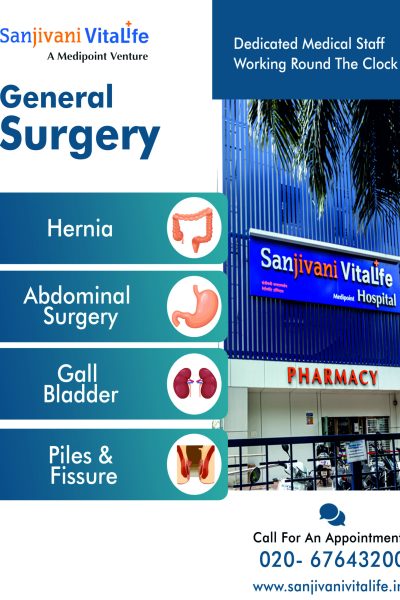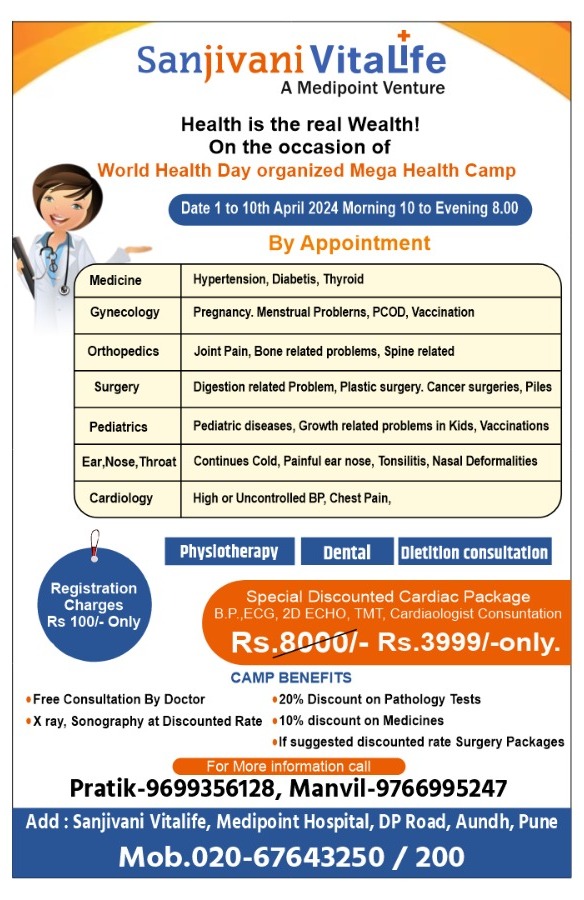General Surgery and Minimal Access Surgery
Sanjivani Vitalife Hospital is one of the most experienced hospitals in Pune

Consultants
Sanjivani Vitalife Hospital is one of the most experienced hospitals in practicing general surgeries.
Sanjivani Vitalife Hospital is one of the most experienced hospitals in practicing general surgeries. We have a team of highly-trained professionals who have conducted over 1000 laparoscopy surgeries in a year. Our surgeons are the best surgeon you can find in the city as they know whether you need surgery or the disease can be cured through medicines or physiotherapy
General Surgery and Minimal Access Surgery
Plus, we are available at your service 24×7 for emergencies and other services relating to trauma. The general surgery department of Sanjivani Vitalife takes care of all the diagnostic, preventive, and therapeutic or surgical procedures

There are different types of diseases and conditions that can affect the human body including many different causes like lifestyle choices, genetic predisposition, and exposure to viruses or toxins. Early detection and treatment are often key to a successful outcome, particularly in cases like asthma, diabetes, blood pressure, and thyroid problems.
Health mainly refers to physical, social, and mental well-being whereas wellness aims to enhance well-being. Wellness is more than just physical health i.e., physical wellness, emotional wellness, environmental wellness, intellectual wellness, social wellness, and spiritual wellness. There are certain ways to maintain your general health and well-being.





